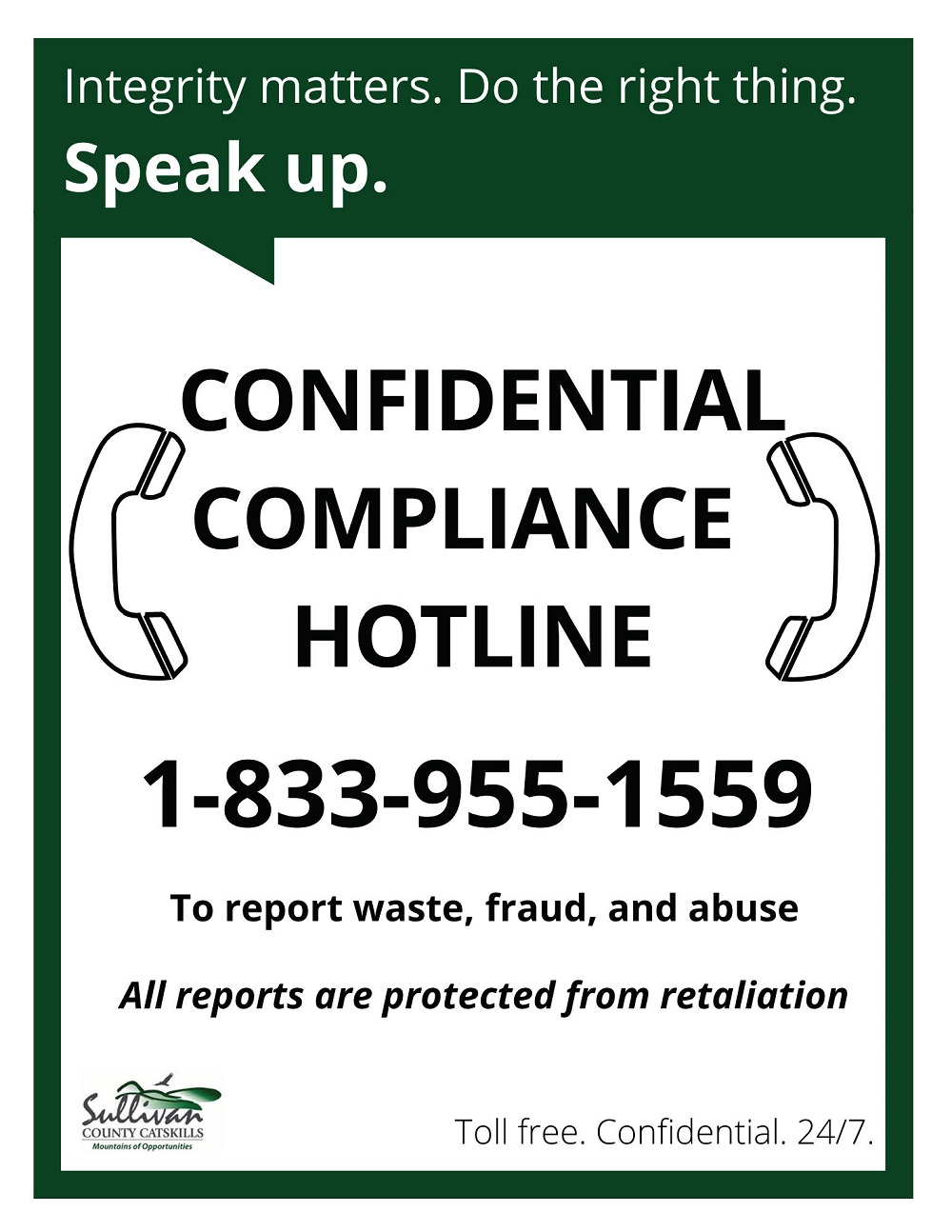Monticello, NY – Legislators this month authorized the increase of tipping fees for trash removal companies bringing waste to Sullivan County transfer stations.
“Since this has been something of interest and concern to the public, we want citizens to understand how and why we came to this decision,” explained Legislature Chair Nadia Rajsz. “We were forced to raise rates because of our rising exportation costs. In the meantime, we are diligently looking at other means of handling our waste.”
“With rumors and assumptions floating around, it’s important for people to know the reality of our garbage disposal service, which is getting more expensive,” said Vice Chair Joe Perrello, who chairs the Legislature’s Public Works Committee. “We are spreading the cost of the system more fairly across actual users instead of taxpayers, and we intend to enforce our flow-control rules (waste produced in Sullivan County must be disposed in Sullivan County). Still, this is a burden on everyone, which is why I support seriously looking at a waste-to-energy plant.”
“While no one’s happy with increased rates, we continue to actively work on solutions to address the challenges ahead,” District 1 Legislator and Majority Leader Matt McPhillips stated. “We share the concerns of our communities and businesses about rising costs. A more comprehensive solution is needed to secure our future ability to serve the public at a price that is affordable.”
“We were notified of the rate increase at the last minute in December,” said District 4 Legislator and Minority Leader Nick Salomone. “Due to public reaction, I think we need to find a solution next year to take the burden off the homeowner, perhaps using the sales tax surplus. I’d like to make that decision by or before July 1, when the higher rate kicks in.”
What Is a Tipping Fee?
Like all waste processing facilities, Sullivan County’s solid waste program charges a fee to receive a given quantity of trash from commercial trucking companies (typically referred to as “waste haulers” or “garbage trucks”). This is called a “tipping” fee – presumably because some trucks tip their beds to dump the garbage into a collection trailer, although the origin of the phrase is unclear.
Tipping fees are charged to offset the costs of providing a solid waste collection and disposal service. However, while individual users who bring their trash to County transfer stations are usually charged on a per-bag basis, commercial haulers are charged by the ton, since they are bringing much greater quantities collected from multiple households and businesses.
What Is the Current Tipping Fee in Sullivan County?
As of December 2024, Sullivan County charges $120 a ton to deliver municipal solid waste (MSW) and construction and demolition (C&D) debris into its system.
Legislators have agreed to increase the fee to $150 a ton in the new year, with an interim increase to $136.50 from January 1 to June 30, 2025 for MSW only. The C&D tipping fee will become $150 a ton on January 1, 2025.
Why Is the Tipping Fee Increasing?
Late in 2024, IESI – the company which transports garbage from County facilities to the Seneca Meadows Landfill in upstate Waterloo, NY – notified the County’s Division of Public Works (DPW) that transportation rates would go up by 11%. The County is already operating via contract with IESI but was able to lower an even larger increase via negotiations.
As the County transports around 100,000 tons of trash a year to Seneca Meadows via IESI, the increase amounts to about $1 million.
However, general expenses have been outpacing revenues in the solid waste program for years, especially since the Solid Waste User Fee ended. These expenses – nearly $1.3 million in 2024 and anticipated to be $2 million in 2025 – continually increase. Thus the County has had to transfer funds from other areas of the budget to offset any losses. (The County does not seek to make a profit on the solid waste system, but neither can it allow balances to go unpaid.)
Raising the tipping fees by $30 a ton is therefore intended to balance revenues with expenses going forward.
Were Alternatives Considered?
Yes. Any immediate change would involve shipping garbage out of state, which would be more expensive.
Legislators are investigating long-term solutions, including a composting center and a facility that could convert garbage into energy by burning it. Earlier this year, they toured such a waste-to-energy facility that has long been permitted to operate in one of the most heavily populated areas of Long Island. The company which operates that facility – Reworld/Covanta – is submitting a proposal to Sullivan County for legislators to review.
The County also is designing and intends to apply to the State to build a composting center at the Monticello Transfer Station. However, these kinds of alternatives will take years to implement, requiring multiple meetings, hearings and regulatory approvals.

